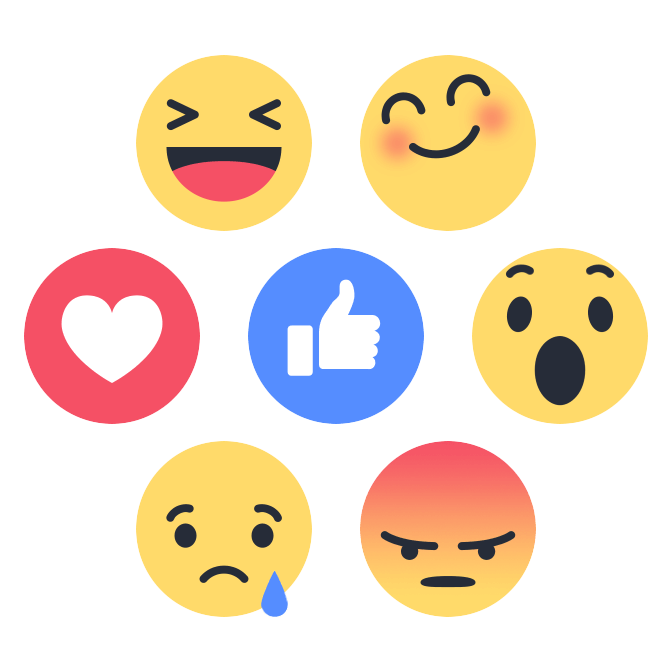Facebook Replaces Like Button with Reactions
February 25, 2016 — by Per Christensson
 We are now in the post-like era.
We are now in the post-like era.
Yesterday, Facebook changed its ubiquitous Like button to an array of different emotions represented by icons. The new selectable smileys, which look similar to emojis, are called "reactions."
The Like button isn't completely gone, but it is no longer the de facto response to a post or comment on Facebook. Instead of only being able to like something on Facebook, you can now select one of several reactions, including Like, Love, Haha, Yay, Wow, Angry, and Sad.
I guess this makes sense for those times when someone publishes a sad note about a friend or family member. "Liking" the post doesn't really make sense. A sad reaction is more fitting. When someone vents about a frustrating event, an angry emoticon seems more apt than a thumbs up.
But the other reactions — Love, Haha, Yay, and Wow — are all pretty similar to Like. In other words, they are unnecessary. [In fact, Facebook has already removed the "Yay" reaction in some locations, probably because it wasn't used enough.] While reactions add some new ways to respond to Facebook posts, people were already using emojis to do that anyway.
I don't doubt the Facebook management has discussed this change at length internally. I'm sure they've tested it, then tested it again. But I can't help but think this is a bad decision for Facebook.
The Like button is one of the staples of Facebook and changing the feature has far-reaching effects. Whether we admit it or not, we all like to see how many people liked our posts. For some, it shows us our friends are engaged and care about what we have to say. For others, it affirms that taking that gym selfie was worthwhile.
The new "reactions" have a different effect. Facebook now displays "# people reacted to this" instead of "# people like this" below each post. It just doesn't feel the same. You can no longer say how many people liked what you published. A lot of Facebook users care how many people like their posts and this new change makes Facebook less appealing to them.
Who knows — maybe Facebook is intentionally moving away from the Like button to temper the stigma associated with it. Maybe we'll all get used to the change and find reactions to be a more natural user experience. But I'm not sold on it yet.
 Home
Home December 5th
December 5th